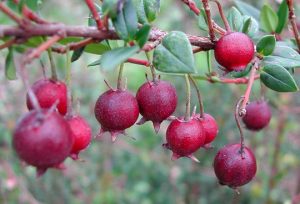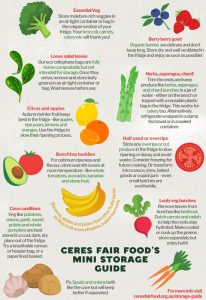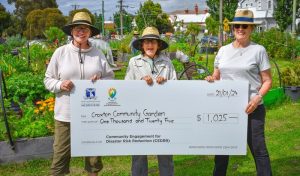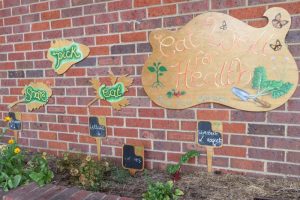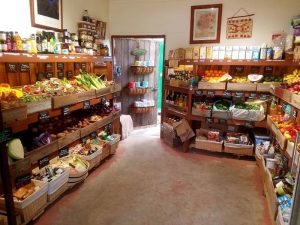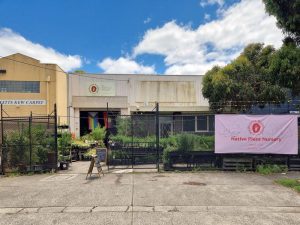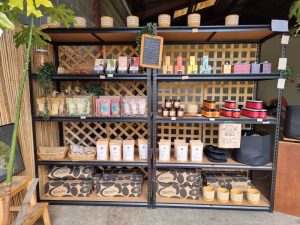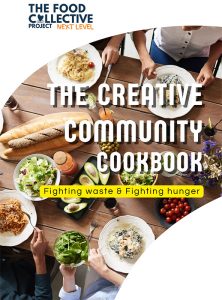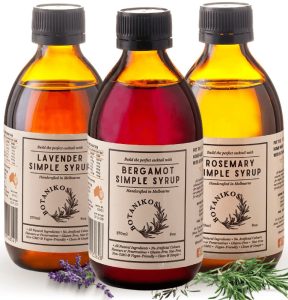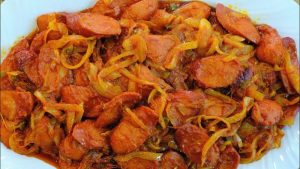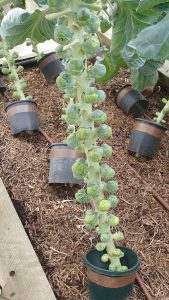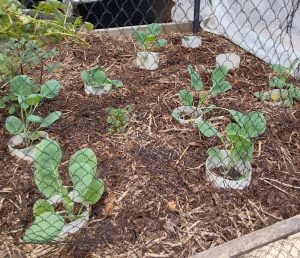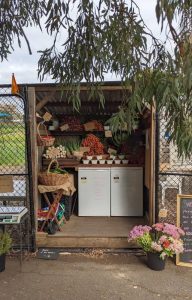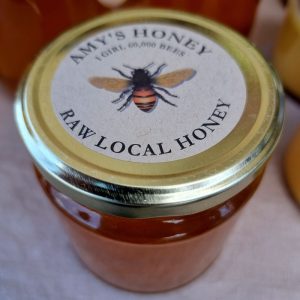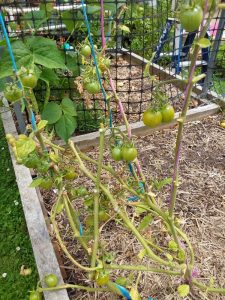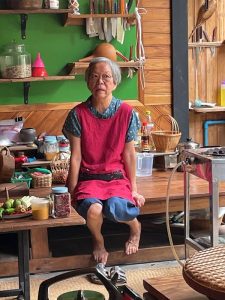Thanks to the people who have contributed to this week’s newsletter: Andrew Ogbourne, Hayden Marks, Leila Alexandra, Robin Gale-Baker, Tahlia Sleeman and Yvonne du Plessis.
It may be pretty but is it tasty? The dangers of cross-pollination
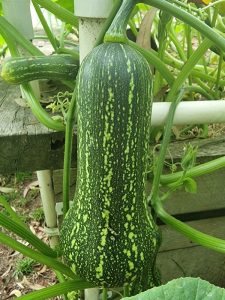 As your pumpkins ripen, you may notice that what has grown is not always what you thought you had planted. Have you, for example, ever got a long, green or bluish-striped pumpkin when you thought you had planted a round Kent or even a Queensland Blue? ‘Cross-pollination’ is the culprit, where cross-pollination is when a flower on one plant is fertilised by pollen from another plant.
As your pumpkins ripen, you may notice that what has grown is not always what you thought you had planted. Have you, for example, ever got a long, green or bluish-striped pumpkin when you thought you had planted a round Kent or even a Queensland Blue? ‘Cross-pollination’ is the culprit, where cross-pollination is when a flower on one plant is fertilised by pollen from another plant.
The photo right is of a ‘tromboncino’ grown from saved seed but it looks like that saved seed was the result of cross-pollination between tromboncino and kent pumpkins. Cross-pollination sometimes produces good produce and can be visually attractive. However it is a lottery and you may well find the results bitter or tasteless and the texture, watery or grainy. It seems such a shame to tend to a crop only for this to happen.
Cross-pollination usually relates to the grandparents of a vegetable rather than to its parents. This is because, when cross-pollination occurs, it affects the seeds (which contain DNA from each of the plants) but not the surrounding fruit (which only contains the DNA of the female parent). So, the fruit grows normally but any plants subsequently grown from the seeds within it will have uncertain fruit.
So, cross-pollination will not affect plants in the first season as long as you use commercial seed (which is never cross-pollinated) or the flowers have been bagged and hand-pollinated by you (so the bees and other pollinators have been prevented from accessing the flowers and thus potentially cross-pollinating them). The bees may be buzzing around transferring pollen between closely related family members but in this season the fruit produced will be whatever you planted. For example, if you plant both pumpkin and zucchini, your pumpkin plants in the first season will always produce pumpkins and your zucchini plants, zucchini.
In season two, however, saved seed from season one can contain the genetics of both parent plants and the progeny will be a cross between the two (just as it is in humans). So, seeds from that delicious pumpkin that you grew will be unlikely to give you the same pumpkin in the following season.
Only varieties within a single species can cross. The species Cucurbita pepo is a [prime example. Within this species are pumpkins, zucchinis and squash (such as spaghetti squash). They are closely related and can easily cross-pollinate. By contrast, whilst cucumbers (Cucumis sativa) are in the same family (Cucurbitaceae), they are a different species so will not cross with pumpkins, zucchinis or squash. However cucumber varieties can cross-pollinate with each other.
Other fruits that can cross-pollinate include cantaloupe and honeydew melon (but neither cross with watermelon).
Tomato varieties can in principle cross-pollinate but in practice hardly ever do. Ditto beans, broad beans and peas.
Brassicas are notorious for cross-pollinating if left to flower and to bad effect, often producing a bunch of leaves in place of a heart in hearting vegetables. Cauliflower, cabbage, kale, Brussels sprouts and broccoli can all cross with each other because they are actually all the same species. Ditto the various mustard greens.
Sweetcorn is a special case because the cross-pollination can affect the fruit in the first year. It should therefore be grown in isolation to preventive odd (and usually defective) fruit. Sweetcorn is wind-pollinated so the pollen can travel a long way on a strong wind. That means that one variety must be at least 35 metres from another (but preferably, to be absolutely sure, 1 km apart). It also means that you should check whether your neighbours are growing sweetcorn and determine the variety. Note that popcorn varieties will usually dominate sweet corn varieties.
Bees can travel vast distances – up to 8km – so they can bring pollen to your garden from a wide array of gardens and plant varieties on their travels. Commercial beehives can be a source of seed contamination and there is a withholding period of 7 days for some crops meaning, for example, that beehives which are moved from crop to crop by beekeepers must not be moved from an area where, say, brassicas are growing to another area where other brassicas are growing for 7 days. Rather, the hives would need to be moved to a neutral zone and wait it out.
When you are travelling in the countryside, you may see fully netted areas that provide enclosures with the netting hem weighted down so that no pollinators can enter the isolation area. This is how seed merchants control the genetics of their seed.
If you only ever use commercial seed, then cross-pollination will not be an issue for you. If, however, you are a seed-saver, or you swap seed with friends or select seed from a seed library, then you need to avoid certain seed or run the risk of a disappointing outcome. In other words, don’t save seed for cucurbits (pumpkins, cucumbers, gourds, rockmelons, watermelons, zucchini, etc), brassicas (cauliflower, cabbage, kale, Brussels sprouts, broccoli, etc) or sweetcorn unless you are sure that cross-pollination has not occurred.
Lemon or lemon-scented myrtle (Backhousia citriodora) by Melbourne Bushfood
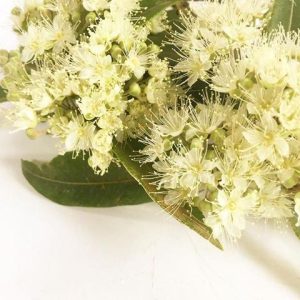 [The material below is a summary of material from the Melbourne Bushfood website. Melbourne Bushfood sells a wide range of bush foods (both the foods themselves and the plants) which you can buy either online or at their shop at 49 Sparks Avenue, Fairfield, Wednesday to Sunday, 10am-4pm.]
[The material below is a summary of material from the Melbourne Bushfood website. Melbourne Bushfood sells a wide range of bush foods (both the foods themselves and the plants) which you can buy either online or at their shop at 49 Sparks Avenue, Fairfield, Wednesday to Sunday, 10am-4pm.]
The leaves have a lemony flavour and can be eaten either dry or fresh, with either the whole leaf being used or milled finely in a powder. They are a fragrant and versatile flavouring which can be used in a wide variety of both sweet and savoury dishes, including ice cream, desserts, cocktails, poured into baked goods, sprinkle over fish and with white meat. The lack of acidity means that it doesn’t curdle dairy-based desserts. Avoid using with foods that require long cooking times (such as roast dinners). The leaves are also commonly used in teas and therapeutic products. They can also be distilled to give the essential oil citral.
The leaves are considered to have both anti-bacterial and anti-fungal properties.
The plant is a shrub which, in cultivation, typically grows to around 2 metres (it can be much taller in the wild). It has dense, green, aromatic foliage, with the leaves having a strong citrus fragrance when crushed. Ideally, plant in full sun or, failing that, in part shade. The plant is both drought tolerant and frost tolerant when mature, but somewhat tender when young.
To harvest, simply pluck the leaves off when required.
Melbourne Bushfood’s website has a number of recipes using lemon myrtle, including: crumbed fish with lemon myrtle and pepperberry; lemon myrtle and wattleseed shortbread; lemon myrtle cheesecake with a nutty wattleseed crust; lemon myrtle marinated chicken with native parsley; lemon myrtle tart; and poached pears with lemon myrtle syrup.
Want a job at Spurrell Foraging?
Spurrell Foraging are seeking new team members to help with the harvest and maintenance of their foraged produce in Silvan. Read more and potentially apply.
Want to volunteer at DIVRS?
Darebin Information, Volunteer & Resource Service (DIVRS) are looking for volunteers to join their Alphington and Preston teams on Thursday mornings to grow veggies to share with people in the Darebin community experiencing food insecurity. Read more and potentially volunteer.
Community garden news – Pentridge
Pentridge Community Garden in Coburg has recently incorporated, now has its own website, and has become independent of Moreland Community Gardening.
Mitcham Community Meal
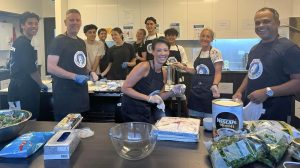 Mitcham Community Meal provides a free community dinner every Sunday evening, where each meal is cooked by a different local community group. During February, the cooking teams were Mitcham Minions, Team KaruCB (see photo right), the Fruit Ninjas and the Happy Chefs. Look at some photos of these teams, plus those of previous teams.
Mitcham Community Meal provides a free community dinner every Sunday evening, where each meal is cooked by a different local community group. During February, the cooking teams were Mitcham Minions, Team KaruCB (see photo right), the Fruit Ninjas and the Happy Chefs. Look at some photos of these teams, plus those of previous teams.
What seeds to plant in March
Here is a list (see the planting guide for more detail):
BrassicasBroccoli |
Other cool season veggiesBroad beans |
Leafy greensLettuce |
RootsBeetroot |
OtherChives |
Compared with February, some of the brassicas are now on the list, plus broad beans, rocket and spinach. The best months for planting brassicas are March and April. What I do is plant seeds in March so that, if they don’t germinate, I can try again in April (or cheat and buy some seedlings).
Read Helen Simpson’s article on growing brassicas and Robin Gale-Baker’s article on growing cauliflower.
The Melbourne ‘Local Food Connections’ community radio show
On next Sunday’s show (3rd March), Ann Stanley will interview Thuch Ajak on the United African Farm . Listen on 3CR (855 AM), 10-10.30am, by tuning into either the station (855 AM) or its livestream.
Podcasts of all previous episodes are available on their website, the latest being Kirsty Bishop-Fox on zero waste (18th February).
Our articles over the last month
Here are some of the articles from our newsletters over the last month that you might have missed:
- Amy’s Beekeeping in North Warrandyte.
- Botanikos in Wonga Park.
- Chilean guava (Ugni molinae) by Jaimie Sweetman.
- Fattoush (by Julie French).
- Loubia (by Julie French).
- Melbourne Bushfood in Fairfield.
- Sour cream vs yoghurt.
- Vegetable dahl (by Jennie Ramage).
Corrections and clarifications – Angelo Eliades’ garden
Last week, I correctly said that there will be a visit to the garden of Angelo Eliades on Sunday, 17th March, 2-3.30pm in Preston but my description of that event was completely wrong (i.e. the wrong copy/paste). Here is the correct information.
A visit to the garden of Angelo Eliades; Sunday, 17th March, 2-3.30pm; free; Preston.
Angelo Eliades is a well-known permaculture gardener with a relatively small home garden packed to the brim with unusual food-producing plants, both indigenous and exotic. This includes sub-tropical species (e.g. bananas). Angelo will explain his watering set-up and planting techniques as well as discuss the plants. Organised by Sustainable Macleod.
Which link was clicked most times in the last newsletter?
The most popular link in the last newsletter was CERES’ Fair Food’s summary fruit and vegetable storage guide.
The most popular event link in the last newsletter was a visit to the garden of Angelo Eliades.
 Joke (or pun) of the week
Joke (or pun) of the week
He pasta away.
We cannoli do so much.
His legacy will become a pizza history.
Here today gone tomato.
How sad he ran out of thyme.
Sending olive my prayers to the family.
His wife is really upset, cheese still not over it.
You never sausage a tragic thing.
Regular activities over the coming week
Farmers’ and other food markets
- Thursday: The Food Collective Market, Epping.
- Friday: Farm Raiser farmgate (Bellfield) and Community Grocer, Carlton.
- Saturday: Carlton, Coburg and Farm Raiser farmgate (Bellfield).
- Sunday: Alphington, Eltham and Heathmont.
- Tuesday: Community Grocer, Fitzroy.
Food swaps
- Saturday: Bayswater North, Brunswick East, Collingwood, Fitzroy, Heidelberg West, Pascoe Vale & Glenroy and Warrandyte.
- Sunday: Blackburn, Montmorency and Regent (Reservoir).
Community gardens
- Thursday: Buna (Heidelberg West), Diamond Valley Library (Greensborough), Edible Hub (Hurstbridge), Fawkner Food Bowls – children (need tickets), SEEDs (Brunswick) and Whittlesea.
- Friday: Reynard Street (Coburg) and West Brunswick.
- Saturday: Links (Lalor), Macleod and Thrive (Diamond Creek).
- Sunday: Fawkner Food Bowls, Northcote Community, Pentridge (Coburg) and Regent (Reservoir).
- Monday: Macleod, Panton Hill, SEEDs (Brunswick) and Whittlesea.
- Tuesday: Watsonia.
- Next Wednesday: Eltham Neighbourhood House, Macleod, Newton Street (Reservoir), Span (Thornbury) and Sylvester Hive (Preston) .
Upcoming face-to-face events – not cooking
Summer fruit tree pruning workshop; Wednesday, 6th March, 10.30am-midday; free; Reservoir.
Angelo Eliades, from Deep Green Permaculture, will show you: how to assess your tree before pruning; where to make your pruning cuts; how much to take off; and how to prune different types of trees.
Whittlesea Food Collective talk; Friday, 8th March, midday-1pm; free; Lalor.
Aisha Khurram, Hardship Help Program Coordinator from Whittlesea Community Connections, will tell her story of how she came to oversee the Whittlesea Food Collective and how we can best access these services
Chinese green tea taste; Saturday, 9th March, 3-5pm; $60 ($30 per hour); Fitzroy.
You will sample three chinese teas (taiping houkui, huangshan maofeng and tieguanyin) served with seasonal fruit and homemade cookies. During the ceremony, they will discuss how tea has formed a key part of Chinese culture from the past until now. There will be a limit of 6 attendees.
Homepatch home and garden visit; Sunday, 10th March, 1-3pm; $10; Hurstbridge.
See how a family in a typical 1970s suburban home integrates permaculture principles into garden, home, household and community systems, with a focus on energy efficient features.
Summer fruit tree pruning workshop; Saturday, 16th March, 9-11am; free; Bundoora.
Christie, from The Fruit Tree Folk, will show you how to prune your fruit trees.
Large suburban property tour; Wednesday, 20th March, 5.30-7pm; $5; Lilydale.
This one acre garden has a variety of areas, both ornamental and edible. There are two beehives, chickens and a bath worm farm. They also have hot water heat pumps, water tanks, solar panels and batteries.
Urban food gardening (8 sessions); consecutive Thursdays starting 15th April, 10am-2.30pm; $80 for all 8 sessions (Government-subsidised fee); Edendale.
The Government-subsidised fee of $80 is only for those who are a permanent Resident and/or Australian Citizen/New Zealand Citizen and not enrolled in mainstream secondary school. This course is for people who love gardening and the outdoors, are considering a career in horticulture, would like to learn more about growing their own food successfully or who would like an introduction to aspects of working in the industry before choosing a specific course/study pathway. Tutor: Justin Calverley. Organised by Living & Learning Nillumbik.
Coffee around the world with the Islamic Museum of Australia; Thursday, 18th April, 7-9pm; free; Preston.
Take a trip through Lebanon, Turkey and Vietnam with a coffee tasting guide from the Islamic Museum of Australia.
Composting workshop – from scraps to super soil; Saturday, 20th April, 10-11.30am; free; Bellfield.
Learn about all the tips and tricks to make great compost. Find out more about different containers, worm farming and bokashi buckets. Then take a tour of the Bellfield Community Garden to see first hand how your garden can benefit from compost. Click here to read about the garden.
In March
- Whittlesea Garden Expo; Saturday, 2nd March, 9am-3pm; $8; Whittlesea.
- Introduction to beekeeping (2 sessions); Saturday, 2nd March, 9.30am-4.30pm and Saturday, 9th March, 10.30am-12.30pm; $225 ($24 per hour); Blackburn North.
- Urban foraging 101; Saturday, 2nd March, 10am-12.30pm; $90 ($36 per hour); Forest Hill.
- Organic gardening for beginners (2 sessions); Saturday 2nd and Sunday 3rd of March, 10am-2.30pm; $85 ($9 per hour); Richmond.
- Companion planting and mini market; Saturday, 2nd March, 10.30am-12.30pm; free; Montrose.
- The Prosecco Festival; Saturday, 2nd March, 11am-10.30pm; $70; Abbotsford.
- Whittlesea Garden Expo; Sunday, 3rd March, 9am-3pm; $8; Whittlesea.
- Introduction to mushroom growing workshop; Sunday, 3rd March, 10-11am; $53 ($53 per hour); Heidelberg West.
- Food waste solutions – Bev Middleton; Sunday, 3rd March, 12.30-1.45pm; free; Edendale.
- Summer fruit tree pruning workshop; Wednesday, 6th March, 10.30am-midday; free; Reservoir.
- Summer vegetables illustration (4 sessions); consecutive Thursdays, starting 7th March, 10am-midday; $144 ($18 per hour); Forest Hill.
- Whittlesea Food Collective talk; Friday, 8th March, midday-1pm; free; Lalor.
- Awara open garden; Saturday, 9th March, 11am-12.15pm; $22 ($18 per hour); Pascoe Vale South.
- Mushroom farm tour; Saturday, 9th March, 2-2.30pm;$27 ($54 per hour); Alphington.
- Wild edible gardening; Saturday, 9th March, 2-4.30pm; $53 ($21 per hour); Pascoe Vale South.
- Chinese green tea taste; Saturday, 9th March, 3-5pm; $60 ($30 per hour); Fitzroy.
- Homepatch home and garden visit; Sunday, 10th March, 1-3pm; $10; Hurstbridge.
- James Wall on growing vegetables in pots; Wednesday, 13th March, 8-10pm; free; Doncaster East.
- Mushroom foraging; Thursday, 14th March, 6.30-8.30pm; $85 ($43 per hour); Collingwood.
- Summer fruit tree pruning workshop; Saturday, 16th March, 9-11am; free; Bundoora.
- Grow your veggie garden; Saturday, 16th March, 10-11am; $25 ($25 per hour); Kinglake.
- Edible weeds; Saturday, 16th March, 10am-midday; $70 ($35 per hour); CERES.
- Growing nutrient dense food; Saturday, 16th March, 10am-3pm; $145 ($29 per hour); CERES.
- Jenny’s garden open garden; Saturday, 16th March, 10am-4.30pm; $10; Canterbury.
- The Herb and Chilli Festival; Saturday, 16th March, 10am-5pm; $27; Wandin.
- Victorian Whisky Festival; Saturday, 16th March, 11am-4pm; $93; Preston.
- Setting up a worm farm; Saturday, 16th March, 2-3.30pm; free; Edendale.
- Local Sustainability Fair (Ringwood); Sunday, 17th March, 10am-2pm; free; Ringwood.
- Ricotta festival; Sunday, 17th March, 10am-4pm; $10; Thomastown.
- Jenny’s garden open garden; Sunday, 17th March, 10am-4.30pm; $10; Canterbury.
- The Herb and Chilli Festival; Sunday, 17th March, 10am-5pm; $27; Wandin.
- A visit to the garden of Angelo Eliades; Sunday, 17th March, 2-3.30pm; free; Preston.
- Permaculture garden tour (Tenderbreak); Sunday, 17th March, 2-5pm; $10; Dixons Creek.
- Large suburban property tour; Wednesday, 20th March, 5.30-7pm; $5; Lilydale.
- Permaculture workshop with Matt Daniele of PEACE Farm; Thursday, 21st March, 2-4pm; free; Lilydale.
- CERES Harvest Festival; Saturday, 23rd March, 10am-3pm; $5; Brunswick East.
- Introduction to food photography; Saturday, 23rd March, 1.30-4.30pm; $119 ($40 per hour); Warrandyte.
- Urban property garden tour; Sunday, 24th March, 10am-midday; $10; Kilsyth.
- Introduction to permaculture; Sunday, 24th March, 10am-3pm; $145 ($29 per hour); CERES.
- Traditional wooden spoon carving; Sunday, 24th March, 10am-4pm; $145 ($29 per hour); CERES.
- Grow your own mushrooms; Wednesday, 27th March, 6.30-8.30pm; $160 ($53 per hour); Collingwood.
In April
- Heritage apple tasting; Monday, 1st April, 3-5pm; $20; Templestowe.
- Microgreens growing; Saturday, 6th April, 10am-midday; $80 ($40 per hour); CERES.
- Beginners backyard beekeeping; Saturday, 6th April, 10am-3pm; $220 ($44 per hour); CERES.
- Small space gardening; Saturday, 6th April, 10am-3pm; $115 ($23 per hour); CERES.
- The herbal apprentice (8 sessions); starting Saturday, 6th April, 10am-3pm; $995 ($21 per hour); CERES.
- SEEDs Communal Garden open garden; Saturday, 6th April, 10am-4.30pm; $8; Brunswick.
- Australian Distillers Festival; Saturday, 6th April, midday-7pm; $68; Abbotsford.
- Awara open garden; Saturday, 6th April, 2-3.15pm; $22 ($18 per hour); Pascoe Vale South.
- Edible weeds; Sunday, 7th April, 10am-midday; $70 ($35 per hour); CERES.
- Urban foraging 101; Sunday, 7th April, 10am-12.30pm; $90 ($36 per hour); Forest Hill.
- Australian Distillers Festival; Sunday, 7th April, midday-5pm; $68; Abbotsford.
- Heritage apple tasting; Sunday, 7th April, 2-4pm; $20; Templestowe.
- Kat Lavers on permaculture kitchen garden design; Wednesday, 10th April, 8-10pm; free; Doncaster East.
- Savvy tricks to make your food go the distance; Thursday, 11th April, 10-11.30am; free; Ringwood.
- Plants and permaculture; Saturday, 13th April, 10am-3pm; $145 ($29 per hour); CERES.
- Urban food gardening (8 sessions); consecutive Thursdays starting 15th April, 10am-2.30pm; $80 for all 8 sessions (Government-subsidised fee); Edendale.
- Urban food gardening (10 sessions); on Wednesdays, starting 17th April, 9.30am-1.30pm; $50 ($1 per hour); Brunswick.
- Coffee around the world with the Islamic Museum of Australia; Thursday, 18th April, 7-9pm; free; Preston.
- Organic vegetable growing; Saturday, 20th April, 10am-3pm; $145 ($29 per hour); CERES.
- Composting workshop – from scraps to super soil; Saturday, 20th April, 10-11.30am; free; Bellfield.
- Autumn native plant sale; Saturday, 20th April, 10am-4pm; free; Eltham.
- Big Vegan Market; Saturday, 20th April, 10am-6pm; $9; Carlton.
- Big Vegan Market; Sunday, 21st April, 10am-6pm; $9; Carlton.
- Sustainable gardening (8 sessions); Tuesday, 23rd April, 10am-2pm; $650 ($20 per hour); CERES.
Regular events
- Beekeeping workshop; roughly once a month on Saturdays, 1-4pm; $95 ($32 per hour); Brunswick East.
- Brewery tours; every Wednesday, Thursday and Friday, 3-4.30pm; $38 ($26 per hour); Abbotsford.
- Carlton aperitvio food tour; every Friday, 5-7pm; $139 ($70 per hour); Carlton.
- Cocktail making classes; various dates, times and costs; Richmond.
- Edible Forest tours; every Friday and Saturday, 11am-1pm and again at 1-3pm plus some other days of the week; $28 ($14 per hour); Dixons Creek.
- Eltham trails (walking food tour); various Saturday mornings and Thursday evenings; $65 ($22 per hour); Eltham.
- Flavours of Coburg food tour; 3rd Saturday of each month, 10am-1pm; $65 ($22 per hour); Coburg.
- Gin making masterclass; most Saturdays, 10am-1pm; $175 ($58 per hour); Nunawading.
- Plant to harvest; 1st Saturday of the month, midday-1pm; $5; Macleod.
- Gin masterclass; most Saturdays and Sundays, midday-1pm; $80 ($80 per hour); Eltham.
- Ratio Cocoa Roasters behind the scenes chocolate factory tour; various Fridays and Saturdays; $20 ($14 per hour); Brunswick.
- Spoon carving workshop; various Saturdays and Sundays, 10am-1pm; $130 ($43 per hour); Coburg North.
- Truffle workshop at Ratio Cocoa Roasters; 3rd Sunday of each month, 11am-1pm; $75 ($38 per hour); Brunswick.
- Wine tasting; various Saturdays and Sundays; $130; Fitzroy.
- Wine tasting; various Saturdays, 3-5pm; various prices; Northcote.
Upcoming face-to-face events – cooking
Easter cookie decorating workshop; Saturday, 16th March, 1-4pm; $55 ($18 per hour); Bayswater North.
Learn how to create fondant cookies, including how to colour, two tone and stencil your cookies. Presenter: Katie. Organised by Arrabri Community House.
A taste of India; Monday, 18th March, 1-2.30pm; free; Mill Park.
Julie, from Green Karma, will demonstrate some Ayurvedic Indian recipes .
Dumpling demonstration and tasting; Tuesday, 19th March, 11.30am-midday; free; Greensborough.
The Eltham Chinese Senior Citizens Group will showcase their expertise in crafting Chinese dumplings. This event is a celebration of cultural diversity through the art of cooking, providing an opportunity to learn, share, and savour the rich flavours of Chinese cuisine.
‘No waste’ cooking demo and food recycling; Wednesday, 20th March, 10am-midday; free; Reservoir.
This event is limited to Darebin residents. Open Table will demonstrate two use-it-up recipes: potato croquettes and anything goes pesto. They will then discuss the world of food waste recycling. Plus there will be an opportunity to speak to Darebin’s Climate Emergency team to give your feedback on their draft Climate Emergency Strategy.
Chinese cooking demonstration; Wednesday, 20th March, 6.30-8pm; free; Watsonia.
Jean Silk will demonstrate the process of creating hokkien char (stir-fried yellow noodles with prawns) and pan-fried vegetarian dumplings.
A taste of China and Thailand; Thursday, 21st March, 7-8.30pm; free; Mill Park.
Jean, from Jean’s Asian Cooking, will demonstrate some recipes from China and Thailand.
Exploring fruit possibilities with Alice Zaslavsky; Friday, 22nd March, midday-12.30pm; free; Carlton.
This workshop will explore the qualities of different fruits, including apples and plums in baking and in salads. Although this workshop is free, you must have an entry pass to the Melbourne International Flower & Garden Show.
Entertain with ambrosia apples, hosted by Alice Zaslavsky; Friday, 22nd March, 2-2.30pm; free; Carlton.
Learn about the cooking and entertaining opportunities of ambrosia apples. Although this workshop is free, you must have an entry pass to the Melbourne International Flower & Garden Show.
Sourdough hot cross buns workshop; Saturday, 23rd March, 10am-1pm; $60 ($20 per hour); Bayswater North.
Learn how to make sourdough hot cross buns. Organised by Arrabri Community House.
Exploring fruit possibilities with Alice Zaslavsky; Saturday, 23rd March, midday-12.30pm; free; Carlton.
This workshop will explore the qualities of different fruits, including apples and plums in baking and in salads. Although this workshop is free, you must have an entry pass to the Melbourne International Flower & Garden Show.
BBQ-grilled plums, presented by Alice Zaslavsky; Saturday, 23rd March, 2-2.30pm; free; Carlton.
Learn how plums can uplevel your next BBQ. Although this workshop is free, you must have an entry pass to the Melbourne International Flower & Garden Show.
The Willsmere Station Community Garden sauce day; Sunday, 24th March, 9am-3pm; $45 ($8 per hour); Kew East.
Celebrate the tomato and make passata. You will have a hands on role in making the passata and leave with two bellissimo bottles of sauce. The event includes a vegetarian lunch. Click here to read about the garden.
Vegan chocolate making; Thursday, 11th April, 6.30-8pm; $80 ($53 per hour); Collingwood.
Start by unravelling the story of cocoa butter. Then delve into the intricacies of chocolate making, from melting and mixing the perfect blend of ingredients to mastering the art of setting. Presenter: Tina Gelberidis.
In March
- No waste cook club 18-25 years (4 sessions); on Fridays, starting 1st March, 11am-2pm; $107 ($27 per hour); Coburg.
- Gnocchi making class; Saturday, 2nd March, 10am-1pm; $140 ($47 per hour); Thomastown.
- Fermenting at home; Saturday, 2nd March, 10am-1pm; $120 ($40 per hour); CERES.
- Japanese curry with Chika’s home cooking; Saturday, 2nd March, 10.30am-1pm; $57 ($23 per hour); Coburg North.
- Macarons workshop; Saturday, 2nd March, 2-4pm; $102 ($51 per hour); Lower Templestowe.
- Sourdough bread baking; Sunday, 3rd March, 9am-5pm; $220 ($28 per hour); CERES.
- Sri Lankan cooking class; Monday, 4th March, 6-8.30pm; $90 ($36 per hour); Surrey Hills.
- Sourdough basics; Thursday, 7th March, 6.30-8.30pm; $120 ($60 per hour); Collingwood.
- Japanese cooking 101: Chika’s Japanese home cooking (3 sessions); on 3 consecutive Fridays, starting 8th March, 1-2pm.; $80 ($27 per hour); Greensborough.
- Thai cooking; Saturday, 9th March, 10.30am-1pm; $65 ($26 per hour); Bayswater North.
- Sri Lankan Banquet; Friday, 15th March, 6-8pm; $35 ($18 per hour); Kinglake.
- German easter baking with Claudia Loeber-Rab; Saturday, 16th March, 10am-1.30pm; $80 ($23 per hour); Camberwell.
- Easter cookie decorating workshop; Saturday, 16th March, 1-4pm; $55 ($18 per hour); Bayswater North.
- Croquembouche workshop; Saturday, 16th March, 1.30-5.30pm; $137 ($34 per hour); Lower Templestowe.
- Tomato passata making workshop; Sunday, 17th March, 10-1pm; $10; Watsonia.
- A taste of India; Monday, 18th March, 1-2.30pm; free; Mill Park.
- Thai chicken larb salad; Tuesday, 19th March, 10-11.30am; $28 ($19 per hour); Doncaster East.
- Dumpling demonstration and tasting; Tuesday, 19th March, 11.30am-midday; free; Greensborough.
- ‘No waste’ cooking demo and food recycling; Wednesday, 20th March, 10am-midday; free; Reservoir.
- Chinese cooking demonstration; Wednesday, 20th March, 6.30-8pm; free; Watsonia.
- Natural soda workshop; Wednesday, 20th March, 6.30-8pm; $110 ($73 per hour); Collingwood.
- Plant-based cooking demonstration and tasting with Frankie Cox; Thursday, 21st March, 6-7.30pm; free; Fitzroy North.
- A taste of China and Thailand; Thursday, 21st March, 7-8.30pm; free; Mill Park.
- Exploring fruit possibilities with Alice Zaslavsky; Friday, 22nd March, midday-12.30pm; free; Carlton.
- Urban Nanna’s scraptastic cooking; Friday, 22nd March, 1-2.30pm; $150 ($30 per hour); Croydon Hills.
- Entertain with ambrosia apples, hosted by Alice Zaslavsky; Friday, 22nd March, 2-2.30pm; free; Carlton.
- Cook Indian by the creek; Friday, 22nd March, 6.30-7.30pm; $50 ($50 per hour); Diamond Creek.
- Sourdough hot cross buns workshop; Saturday, 23rd March, 10am-1pm; $60 ($20 per hour); Bayswater North.
- Indian cooking; Saturday, 23rd March, 10am-3pm; $150 ($30 per hour); CERES.
- Exploring fruit possibilities with Alice Zaslavsky; Saturday, 23rd March, midday-12.30pm; free; Carlton.
- BBQ-grilled plums, presented by Alice Zaslavsky; Saturday, 23rd March, 2-2.30pm; free; Carlton.
- The Willsmere Station Community Garden sauce day; Sunday, 24th March, 9am-3pm; $45 ($8 per hour); Kew East.
- Vegan desserts; Sunday, 24th March, 10am-3pm; $150 ($30 per hour); CERES.
- Sunflower cupcake decorating workshop; Sunday, 24th March, 11am-1pm; $100 ($50 per hour); Bayswater North.
- Rose cupcake decorating workshop; Sunday, 24th March, 2-4pm; $100 ($50 per hour); Bayswater North.
- Japanese fermentation; Wednesday, 27th March, 6.30-9pm; $120 ($48 per hour); Collingwood.
In April
- Sourdough basics; Wednesday, 3rd April, 6.30-8.30pm; $120 ($60 per hour); Collingwood.
- Feta, haloumi and mascarpone cheese making; Saturday, 6th April, 10am-4pm; $240 ($40 per hour); CERES.
- Vegan chocolate making; Thursday, 11th April, 6.30-8pm; $80 ($53 per hour); Collingwood.
- The cook program (10 sessions); on Thursdays, starting 18th April, 9.30am-1.30pm; $50 ($1 per hour); Brunswick.
- Sourdough bread baking; Sunday, 21st April, 9am-5pm; $220 ($28 per hour); CERES.
Regular classes
- Al dente cooking (Italian); most Saturdays, 9am-1pm; $155 ($39 per hour); Chirnside Park.
- BBQ classes; various days and times; $135-150 ($45-50 per hour); Brunswick East.
- Bread making; various Sundays, 8am-2pm; $230 ($38 per hour); Abbotsford.
- Brunswick Kitchen (many different classes); various dates, times and prices but mostly 2½ hours long and $120; Brunswick.
- Chocolate making and pastry classes for children; various days, times and costs; Yarra Glen.
- Chocolate making workshop; various Thursdays, Fridays and Saturdays; $152 ($38 per hour); Blackburn.
- Cook to connect; various Tuesdays, 11am-1pm; free; Carlton.
- Cozymeal (many different classes); various dates, times and prices; Carlton.
- Fondant cake toppers; various days and times; $300 ($100 per hour); Ringwood North.
- Kombucha brewing workshop; last Thursday of each month, 7-11pm; $49 ($12 per hour); Brunswick.
- Margot & Montanez (alfajores biscuits); various dates, times and prices; Camberwell.
- High rise baking; weekly on Fridays, 10am-1pm; free; Richmond.
- Nonna & Mum’s cooking class; 4th Thursday of each month, 7.30-10pm; $20 ($8 per hour); Thornbury.
- Otao Kitchen (many different classes); various dates, times and prices but mostly 3 hours long and $197; Abbotsford.
- Rosa’s cooking classes (Italian); various Saturdays and Sundays, 10.15am-3pm; mostly $165 ($35 per hour); Bundoora.
- Sourdough bread workshop; roughly once a month on Saturdays, 9-11.30am; $185 ($74 per hour); Brunswick East.
- Taiwanese cooking; various dates, times and prices; Brunswick.
- Tea blending; various Sundays; $75 ($60 per hour); Brunswick.
- Truffle and praline workshop; various Wednesdays, 6-10pm; $183 ($46 per hour); Blackburn.
- The ultimate biscuit class; various Tuesdays, 10am-3pm; $162 ($32 per hour); Blackburn.

